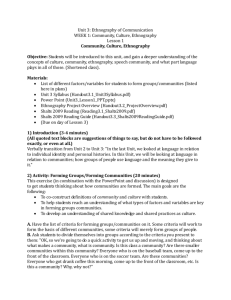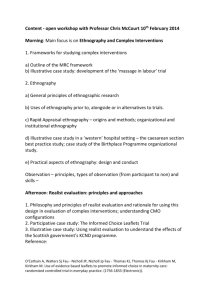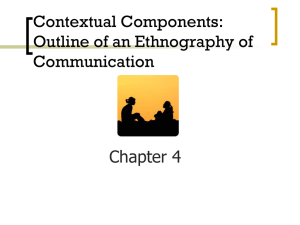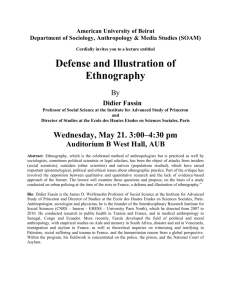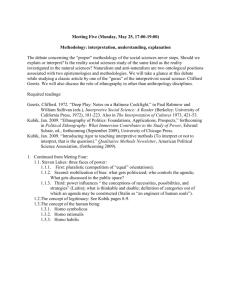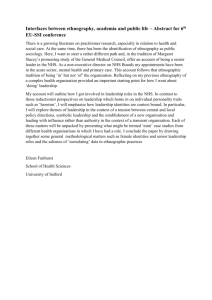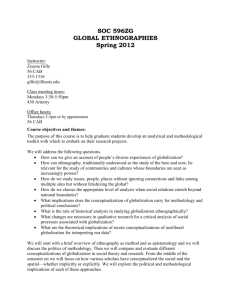Week 2:10/5
advertisement
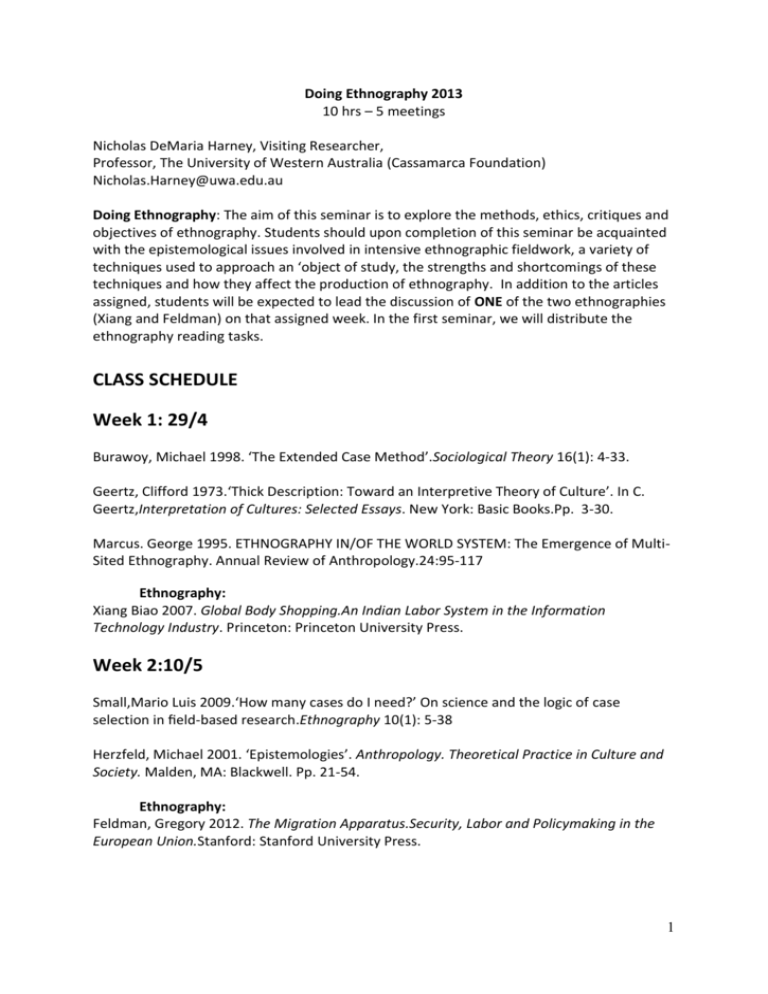
Doing Ethnography 2013 10 hrs – 5 meetings Nicholas DeMaria Harney, Visiting Researcher, Professor, The University of Western Australia (Cassamarca Foundation) Nicholas.Harney@uwa.edu.au Doing Ethnography: The aim of this seminar is to explore the methods, ethics, critiques and objectives of ethnography. Students should upon completion of this seminar be acquainted with the epistemological issues involved in intensive ethnographic fieldwork, a variety of techniques used to approach an ‘object of study, the strengths and shortcomings of these techniques and how they affect the production of ethnography. In addition to the articles assigned, students will be expected to lead the discussion of ONE of the two ethnographies (Xiang and Feldman) on that assigned week. In the first seminar, we will distribute the ethnography reading tasks. CLASS SCHEDULE Week 1: 29/4 Burawoy, Michael 1998. ‘The Extended Case Method’.Sociological Theory 16(1): 4-33. Geertz, Clifford 1973.‘Thick Description: Toward an Interpretive Theory of Culture’. In C. Geertz,Interpretation of Cultures: Selected Essays. New York: Basic Books.Pp. 3-30. Marcus. George 1995. ETHNOGRAPHY IN/OF THE WORLD SYSTEM: The Emergence of MultiSited Ethnography. Annual Review of Anthropology.24:95-117 Ethnography: Xiang Biao 2007. Global Body Shopping.An Indian Labor System in the Information Technology Industry. Princeton: Princeton University Press. Week 2:10/5 Small,Mario Luis 2009.‘How many cases do I need?’ On science and the logic of case selection in field-based research.Ethnography 10(1): 5-38 Herzfeld, Michael 2001. ‘Epistemologies’. Anthropology. Theoretical Practice in Culture and Society. Malden, MA: Blackwell. Pp. 21-54. Ethnography: Feldman, Gregory 2012. The Migration Apparatus.Security, Labor and Policymaking in the European Union.Stanford: Stanford University Press. 1





